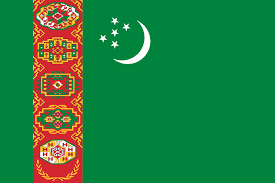Language/Turkmen/Vocabulary/Family-Members
| ◀️ Adjective Agreement — Previous Lesson | Next Lesson — Relationships ▶️ |
Welcome to our lesson on Turkmen vocabulary for family members! In this lesson, you will learn about essential family-related words in the Turkmen language. As we explore these words, you'll also get introduced to some interesting cultural aspects of Turkmenistan and learn some valuable tips for using these words in context.
After mastering this lesson, these related pages might interest you: Express Surprise & Basic Greetings.
Turkmen Family Vocabulary
Turkmen family structures resemble many societies around the world, with a range of nuclear and extended family members. Therefore, when learning about family members in Turkmen, it is helpful to consider the different roles and relationships within families. Let's start by looking at the most common family member words in Turkmen.
Examples:
| Turkmen | Pronunciation | English |
|---|---|---|
| eje | /e.d͡ʒe/ | mother |
| däde | /dæ.de/ | father |
| dogan | /do.ɡan/ | brother |
| älem | /æ.lem/ | sister |
| babir | /ba.bir/ | grandfather |
| nene | /ne.ne/ | grandmother |
| amja | /am.d͡ʒa/ | uncle |
| täze | /tæ.ze/ | aunt |
| ilkinji oglan | /il.kin.d͡ʒi oɡ.lan/ | eldest son |
| ilkinji gyzy | /il.kin.d͡ʒi ɡy.zy/ | eldest daughter |
Extended Family Members
In Turkmenistan, extended families often play crucial roles in a person's life. Many generations might live together or nearby, providing support and camaraderie. Here, we'll be going over some of the essential terms for extended family members in Turkmen.
Examples:
| Turkmen | Pronunciation | English |
|---|---|---|
| ýegen | /jegen/ | nephew/niece |
| jogap | /d͡ʒo.ɡap/ | cousin |
| doganly | /do.ɡan.ly/ | brother-in-law |
| älemli | /æ.lem.li/ | sister-in-law |
| baldyj | /bal.dyz/ | son-in-law |
| goňşy ýarim | /ɡoɲ.ʃy jæ.rim/ | half-sibling (brother or sister) |
Addressing Family Members
Turkmen society tends to follow norms of respect and politeness when addressing family members, especially elders. It's essential to use proper terms of address and adjust your language to show respect.
- To address elders, you should use their first name followed by their title, such as "Mutal eje" (Aunt Mutal) or "Oraz däde" (Uncle Oraz).
- When speaking directly to your parents, you may refer to them as "eje" (mother) and "däde" (father)
- Younger siblings should address their older siblings by their names or titles, like "dogan" (brother) and "älem" (sister), followed by the older sibling's name, e.g., "Gulay dogan" or "Aýşe älem."
Cultural Notes on Turkmen Families
- In Turkmen families, respecting and supporting one's elders is highly valued. It's expected that younger family members will help older relatives, showing them respect and gratitude.
- Turkmen families often celebrate life events and milestones together, such as birthdays and weddings. These occasions are an opportunity for family members to come together and strengthen their bonds.
- Hospitality is an essential aspect of Turkmen culture. Families often welcome guests into their homes and show them warm hospitality, offering food, drinks, and engaging conversation.
Conclusion
Congratulations on completing this lesson on family members in Turkmen! With the knowledge you've gained, you can now engage in conversations about family, learn more about family structures in Turkmenistan, and show respect when addressing and speaking about family members. This lesson is part of our "Complete 0 to A1 Turkmen Course," designed to take you from a complete beginner to understanding and using A1 level Turkmen. Continue on to the next lesson to learn even more about the Turkmen language and culture!
Well done on mastering this lesson! Don't miss these related pages to expand your knowledge: How to Say Hello and Greetings & Common Foods.
Other Lessons
Sources
| ◀️ Adjective Agreement — Previous Lesson | Next Lesson — Relationships ▶️ |

